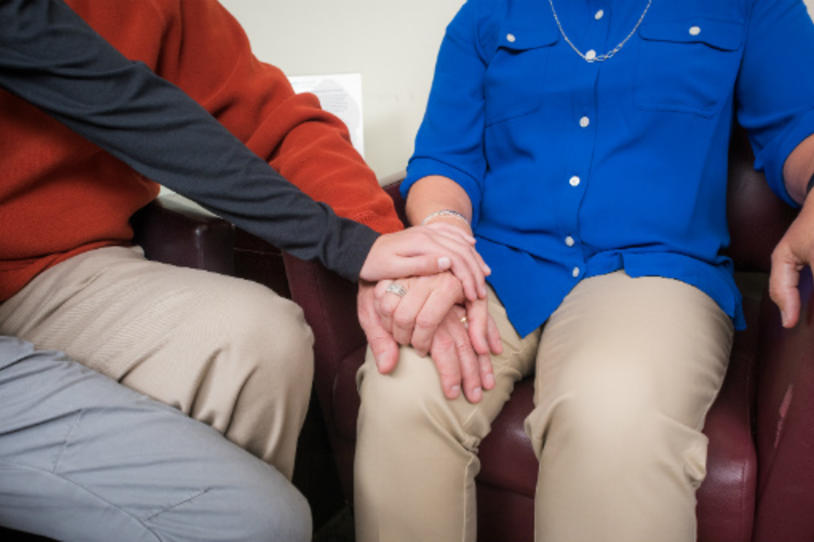
Depression is common in Parkinson's: up to 50 percent of people may experience symptoms of depression at some point, even years before diagnosis. When significant, and especially when unrecognized and untreated, depression can be more troublesome and distressing than Parkinson's motor symptoms.
Depression is certainly understandable. Upon diagnosis and as symptoms progress over time, many people experience a change in mood. But depression is not simply a reaction or a feeling to "get over." It's a real symptom and a disease caused by changes in brain chemicals such as serotonin that regulate mood and motivation.
Depression looks different in different people, but typically it involves low mood and decreased interest or lack of pleasure in previously enjoyable activities. A person with depression may feel hopeless and helpless. Carey Christensen, an MJFF Patient Council member, describes feeling "hopeless, alone, in a dark place, like I would never get better and people wouldn't understand."
Depression can and should be treated. Just as levodopa helps people with Parkinson's move better, anti-depressant medications and/or therapy can help a person with depression function better. If depression in Parkinson's isn't properly treated, other non-motor and motor symptoms can be harder to treat, and regular exercise (critical for everyone with Parkinson's) may seem impossible. Untreated, depression may be damaging at best and deadly at worst.
Unfortunately, our society attaches a stigma to depression and other mental illnesses that can make it difficult to open up and get the help you need. But remember that depression is a symptom of Parkinson's and a disease, not a character flaw. So what can you do?
- Start with a solid treatment team. You should feel comfortable talking openly with your doctor about all of your Parkinson's symptoms, both motor and non-motor. Movement disorder specialists -- neurologists with extra training in Parkinson's -- often are attuned to the non-motor aspects of Parkinson's and how to treat them, as well as how and when to incorporate other experts such as psychiatrists or psychologists.
- Build a strong support system. Surround yourself with friends, family members and others with Parkinson's. Lean on this group when you need encouragement or help, and listen if they mention changes (such as mood shifts) you might not be able to see.
- If you feel depressed, talk to someone. Reaching out can be difficult when you feel "paralyzed" by depression or like there is no hope. But there are people who want to and are willing to listen: friends, family members, others with Parkinson's, etc. If you aren't ready to talk in person, try an online chat forum. Make sure you talk to your doctor, too, even if he or she doesn't ask about your mood.
- If you are concerned your loved one may be depressed, gently bring up the subject. For example, "You don't seem like yourself lately. How's your mood?" Those who are depressed often don't realize it, and chances are they'll be relieved you asked. (Studies show that asking about feeling of depression or suicidal thoughts does not increase them.)
Watch a video and read more about depression and Parkinson's.
If you are in crisis, call the National Suicide Prevention Lifeline at 1-800-273-TALK or visit www.suicidepreventionlifeline.org.
